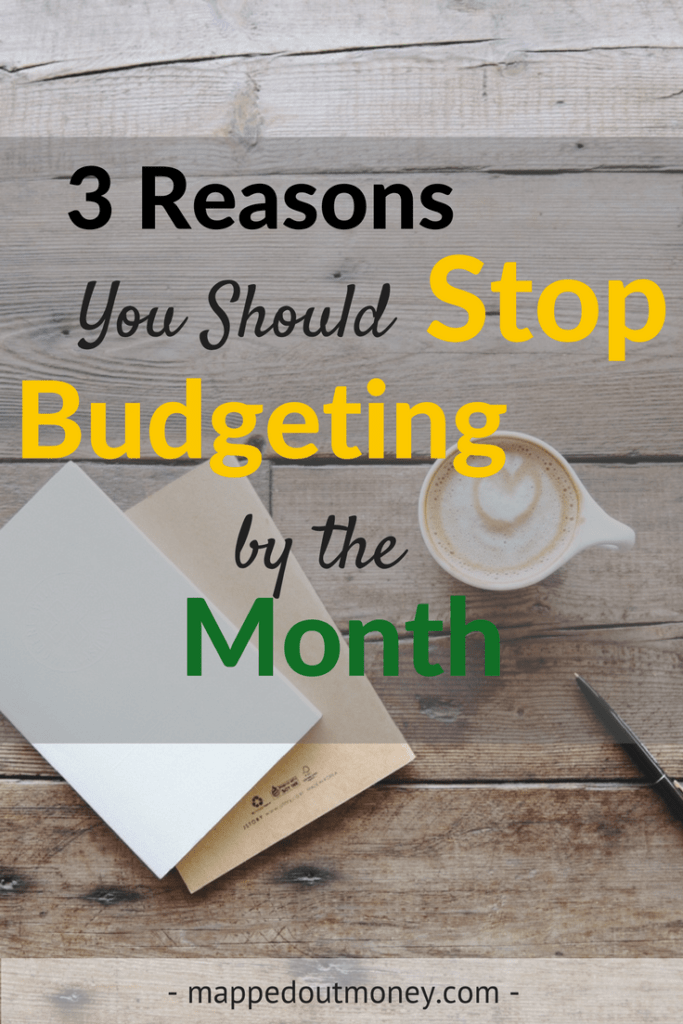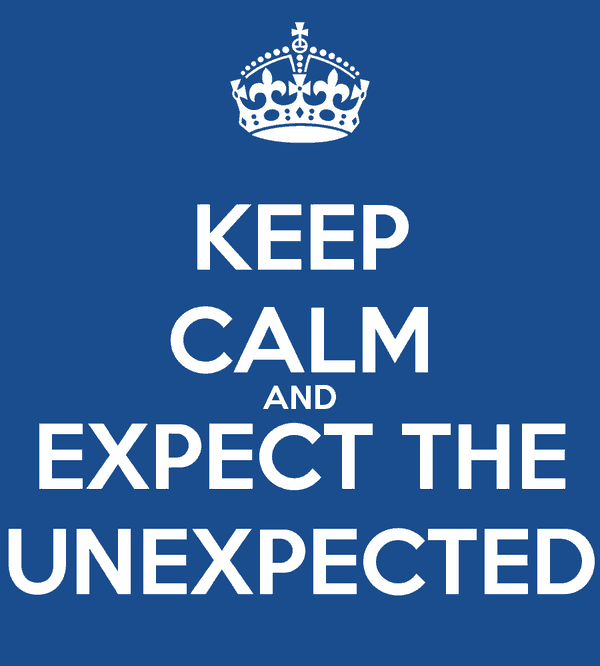Just start a budget they said.
It’ll be easy they said.
All you gotta do is start a budget. Then all of your money problems will be solved and you’ll ride off into the sunset in romantic money bliss.
So you try it out. You start a budget. And then you barely get two weeks in and realize you’re already off.
But you keep pushing and make it through your first month.
Too bad you’re nowhere close to the budget you set. How could you have predicted the dog would get worms and cost you $125 for worm pills?
Oh well, try again next month.
Then another month goes by and you’re still blowing the budget. It wasn’t the dog this time, but your brother turned 21, so you had to take him out for a few drinks. If only you would’ve remembered that earlier.
You vow to do better next month and move forward.
But over and over again, you keep getting off. You’re getting more and more frustrated because this budgeting thing isn’t working like it’s supposed to. You go on like this for another month and eventually just give up.
Screw it, budgets don’t work for you.
Does This Sound Familiar?
 I know, because I’ve been there. Actually, I’m still there in a lot of ways. But it’s not your fault. Sticking to a budget is actually very difficult.
I know, because I’ve been there. Actually, I’m still there in a lot of ways. But it’s not your fault. Sticking to a budget is actually very difficult.
Unfortunately, a lot of financial gurus online don’t talk about this. They want to pretend that doing money well is easy, and it’s just not.
The problem isn’t that you just suck at managing money. The problem is that you’re thinking about it all wrong.
We’re taught to think about our lives in terms of months.
Every month the rent is due, the utility bill is due, the cell phone bill, and on and on. Our financial lives default to a monthly basis. Yet it’s detrimental to your financial health if you only think on a monthly basis.
Here are a few reasons why:
1. You Have Uncommon Large Expenses
You’ve got oil changes, water heater repairs, dog bills, birthday presents, dentist appointments, broken arms, and the list goes on and on.
When you have tunnel vision and only focus on a single month your budget becomes rigid with little room for flexibility. If one thing goes wrong, then the entire month is blown.
And although these expenses may be unexpected, they’re inevitable and we must expect them.
But if you budget month to month you can’t expect the unexpected. There’s no chance. You can’t react when things change and it totally kills you.
2. Holiday Months Require Special Attention
Forget about birthdays. Birthday’s are nothing compared to Christmas.
You’ve got presents for everyone in your family, and your spouse’s family, and those pesky roommates from college who still send you gifts so you feel obligated to send them gifts back.
You know exactly who I’m talking about.
Then there’s decorations, food, lights, pictures, drinks, and outfits for your cats (okay maybe that’s just us).

And Christmas isn’t the only one. You’ve got Halloween costumes and parties to attend in October. Then there are other holidays without presents but you still spend money.
Think about July 4th and Labor day weekend.
Almost 5 months out of the year you’ve got some sort of major holiday that costs you something. How in the world can you expect to stay on budget during these months?
3. You’ll Want To Do Different Things
You can already see that budgeting on a monthly basis is a problem and we haven’t even started talking about your own wants yet.
Some months you’ll go on vacations. Other months you’ll eat out a lot. Sometimes you might spend a lot of gas going to visit friends and other times you might stay home.
No two months look alike, they’re all different.
And that’s okay. It’s part of it.
But between unexpected crap happening, holidays rolling around, and your own wants changing, how are you supposed to budget?
What To Do Instead
Instead of staying narrowly focused on month-to-month, you need to look for overall trends. If you’re still in your first 6 months of budgeting, don’t get discouraged by not being on target. That’s fine, and it’s part of the process.
Don’t let it get you down and most importantly, don’t stop trying to hit your goals. After 6 months you’ll be able to see trends in your spending. Then after a year, you’ll have a much better handle on what a typical month looks like.
That’s when your budget starts to get more accurate.
For example, Hanna and I found that last year we spent roughly $800 on Christmas. That’s decorations, presents, costumes for the cats, Christmas cards, and other misc. Christmas spending. So starting in January of this past year we set aside $80 per month just for Christmas.
If we came across a present for someone that we wanted to put away we would use that $80 to buy it. Then whatever is left at the end of the month went into a special savings account that is for Christmas only. This way we will have plenty of money saved to start spending most of it in November and December.
You can do this with all unexpected expenses whether it’s car repairs, holidays, birthdays, and even medical bills. After a solid year of budgeting, you’ll have a good handle on your base unexpected needs. Hanna and I budget $250 per month in unexpected expenses. Anything we don’t spend out of that just goes to savings for later use.
Unfortunately, lately, we’ve been needing all of it.
But that’s life. Things happen.
Software That Can Help
In order to look for overall trends, you’ll probably need to use software… I mean unless you’re going to break out your compass from high school geometry…
Most people will need some form of software to get a solid idea of what’s happening over the long-term.
Hanna and I use You Need A Budget (YNAB) to track all our expenses. We love it because it allows us to easily change where we budget money and stay flexible.
I highly highly recommend YNAB and they don’t pay me a dime for saying that. I just use it and love it and think you should too.
If you’re not up for YNAB, a few others I’ll mention is Personal Capital and Quicken.
Personal Capital is fantastic for investments and seeing all your accounts in one place. But it is lacking on the budgeting side. However, if all your looking for is to get an overall trend, it’ll do the job.
Quicken is a bit better on budgeting compared to Personal Capital, but it doesn’t have quite as much flexibility as YNAB. However, if you’re looking to run reports and see spending habits, it does the trick.
And of course, I can’t talk about budgeting software and not mention building your own spreadsheets.
While most of us aren’t interested in spending the time and effort required, there’s definitely a lot of personal reward in building something yourself.
Just Keep Going
Budgeting is hard. Money is hard. Adulting is hard.
None of this is easy. But it can be done. So pick up budgeting app, create a budget, and get started screwing it up. That’s the only way to learn what works for you. Just don’t be discouraged. We all have things come up and we all miss our goals. But moving forward is the only way to win long-term.
So just keep going.
Would you like to learn more ways you can choose financial freedom? Sign up for my FREE 5 Lesson Email Course on Choosing Financial Freedom.

Budgeting is like exercising. At first it’s super difficult but over time your body and mind become use to it until it’s second nature. Thanks for sharing!!!
Yes it is! Glad you enjoyed the article 🙂
I’ll add one more to the reasons to budget over a larger timeframe then monthly, the ability to see what the supposedly little financial leaks are costing you over the long run. A dollar here a dollar there or even 300 a momth might not sound like much. But multiplied out to a year that’s 3600 dollars. It can be a real slap in the face moment.
Excellent reason! Those little leaks add up a whole lot once you realize the big picture. Thanks for the insight!
Budgeting is difficult for sure. I do think though that the positive side of having a budget, is that it makes you think hard about what youre spending on daily spenditures and for a lot of people, that can help cut out all the unnecessary purchases.
Once you get to that point though, I definitely think its a little much doing a monthly budget.
Definitely! The best part about a budget is that it makes you think about your money. That’s always the most important thing. Thanks for your thoughts!
It can get quite difficult to start budgeting however once incorporated into your lifestyle, it can become a routine and will be easy to manage. I always get sucked in with those unexpected expenses that throws my budgeting off guard too. Now I have an idea what to do. Thanks for sharing this article!
I know! The pesky unexpected expenses get me too. Glad you enjoyed it 🙂
In his book “Why Didn’t They Teach Me This In School” Cary Siegel introduces a simple budget layout that I use to retroactively track expenses.
This allows me to make adjustments to discretionary spending as the year goes by and to see how much I’ve spent in each category at the end of the year.
I do it all in a free version of Excel 2003 that doesn’t require me to give it access to any of my online accounts. I think it is prudent to check those accounts at least monthly anyway so why not just write the numbers down in a spreadsheet to track your own net worth.
Printing and analyzing bank and credit card statements on a monthly basis builds an important discipline in my opinion.
Absolutely. I love this man! A lot of the problems people face with their finances could be solved if they were just diligent about tracking so they really knew where they stood.
It’s so important.
Great article thanks. And something that has helped me is when the unexpected items pop up, to re-evaluate my budget categories as in a lot of cases a new category is needed. For example a category for pet medical expenses (and setting aside a small amount each month) would mean the $125 for pills is already there the next time dog gets worms.
Love it Matt! You’re totally right about re-evaluating the categories and adding. That’s a fantastic suggestion and something we should all be doing on the regular. Thanks for commenting and reading!
It’s really tough to stay on the lines of your budget, but what I’ve learned so far is that; practice makes perfect. In the beginning, you’ll be struggling to meet the budget but as you keep rolling the sleeves then at long run you’ll be able to stick to it.
I’m going for the YNAB software starting right now.
Thanks for your insight.
You’re totally right Anthony! It gets a lot easier overtime.
Hope you enjoy YNAB, let me know if you have any questions. I love YNAB and am always happy to point people in that direction.
Thanks for reading man!
Thank you for all of these videos! I have just found your site today. We tried YNAB Classic several years ago. It was helpful, but the credit card input always tripped us up. Also seemed to have difficulty keeping our records and bank records in sync, no matter how hard we tried. We have been using Mint, but I find it to be a great tracking tool, but not such a great planning tool. Your extensive information and clear explanations are inspiring me to give YNAB another run. Thanks again!
Awesome Brenda! So happy its helpful for you. I’m hoping to do more YNAB videos soon, so be on the lookout for those. Hopefully, they’ll continue to help you! Thanks for stopping by and leaving a comment 🙂
Great article I used ynab from 2015 as a ynab4 user I still find it difficult to stick to it and mess up then restart etc then I came across your ynab video which is a great motivation for me to fresh start and move forward.
Here goes…… Starting from zero money waiting to be paid next week. Adulting shouldn’t be this hard for sure
Hey Steve!
So glad that the video has been helpful for you and given you some renewed energy for pursuing YNAB!
I know it’s tough, but glad to hear you’re getting back after it.
Good luck YNABing!
Let me know if there’s ever anything I can do to help my friend.
Hi Nick,
I can hardly say I’m adulting as I’m 42 already, but I am new to YNAB and discovered your video’s with it. Some are very instructive, others inspiring. Thanks to lot to you and Hannah.
Thanks Marlies! I’m glad to hear that the videos and articles have been really helpful for you. It means a ton for you to take the time to leave a comment here 🙂
Let us know if there’s anything we can do to help!
You are so right!
I love thinking about my budget from an annual perspective. And then working my annual budget (ex. 2020) alongside my annual financial goals (ex. Finally payoff my student loans in 2020!).
Awesome Nate! Super excited for you to finally payoff those loans next year. Congrats man.